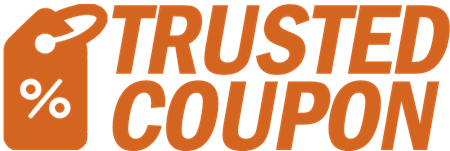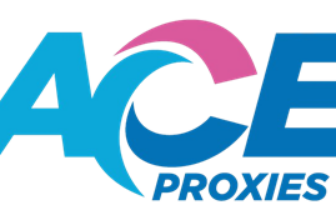
Free Apps & Software for Non-Profits
[ad_1]
According to the National Day Calendar, February is Free & Open Source Software (FOSS) Month. Open source (OS) software can be a fantastic resource for non-profit organizations that need technology, just as a for-profit business does, but often have fewer resources to pay for expensive solutions.
So, what is an open source software? You probably already use some of the most popular open source packages without even realizing it.
- WordPress (blogging and website design)
- Firefox (internet browser)
- Android (mobile device operating system)
These are all open source software. OS software developers (aka the copyright holders) make the source code available to anyone to view or edit. The software or app is also free for anyone to use, copy, or give away. OS software is often developed in a public collaboration. For example, if you click on About Firefox in the browser's Help menu, you will see that the Firefox internet browser "is designed by Mozilla, a global community working to keep the Web open, public and accessible to all."
The idea behind this way of creating software is the theory that programmers, who work for a for-profit business and the business itself, are focusing on protecting their ownership and profit in addition to, or instead of, making the software the highest quality it can be. OS advocates believe that a larger group of programmers, who rely on peers to find and eliminate problems in the code, will create a more useful and higher quality product for everyone.
The big advantage of open source software, of course, is that it's free. The fact that the code is public means that hundreds or even thousands of programmers and users may test, evaluate, debug, and enhance the app you eventually use. Here are the top 5 reasons open source advocates give for the benefits of open source software, in addition to the zero-dollar price tag:
- Security: the more people who can see and test a set of code, the more likely security flaws will be found and fixed.
- Reliability: it's peer reviewed, with bugs fixed immediately rather than in far-future versions.
- Identity: it can be customized.
- Low-resource intensity: open source software can frequently be run on the older computers common in non-profit offices.
- Freedom of choice: No commitment until you are sure (try as many different packages as you want-they're free!)
There are downsides, however. The most common, in my experience, is that there probably isn't a help desk or tech support phone number for users to call. The help desk for an OS software system may be the same blog or website where programmers and testers download code and discuss bugs that they find.
Below is a list of some OS apps and software, which many non-profit organizations will find useful. They are all widely used, award-winning packages. Just remember, that doesn't mean they are all automatically right for YOUR non-profit. Consider who on your staff (whether in-office or consultants) will
- install the software
- maintain the software and any data
- train new users
- use the software on a regular basis
Consider also whether this software needs to "talk to" other software in your organization. Will the packages be compatible? If you have existing data that will need to be converted to the new package, who will do that?
Now that we've cautioned you about the risks, here are our favorite open source software packages:
- LibreOffice: office productivity suite including word processor, spreadsheet, presentation, database, etc. based on, and successor to OpenOffice. Awarded Best Free Office Suite by CNET Magazine
- GIMP: GNU Image Manipulation Program photo and image editor. Works on GNU / Linux, OS X, Windows, and more. Named a Top Free Software Pick for 2013 by PC Magazine
- Audacity: digital audio editor created by a professor and a student at Carnegie Mellon University. Chosen as one of PC World Magazine's 100 Best Products of 2008
- Shotcut: cross-platform video editor and encoder. Named a TechRadar Download of the Day
- Thunderbird: email and chat client developed by Mozilla (maker of Firefox). PC World Magazine's Best 100 Products in 2005 and 2008
- KeePass: password manager. Recommended password manager by the German Federal Office for Information Security and the French Network and Information Security Agency. KeePass has the highest score in the password management grid of G2 Crowd
- Rocket.Chat: multi-platform web chat, video conferencing, and team communications. InfoWorld Magazine BOSSIE 2016 Award
One of the biggest non-profit needs is for a constituent relationship management (CRM) system that allows the organization to keep track of donors, prospects, volunteers, and other constituents as well as communications with constituents. Here are the free and open source CRMs you might investigate when it's time for a new CRM at your non-profit.
- Suite CRM (formerly Sugar CRM) is one of the most popular, although it is not specific to non-profit
- CiviCRM has been developed specifically for non-profit organizations
If you want to learn more, many non-profit and charitable organizations promote the open source software movement. Here are a few of the largest and longest-lived:
- Apache Software Foundation: provides support for the community of Apache open-source software products
- The Document Foundation: German charitable foundation created by a large group of free software advocates
- The Eclipse Foundation: an independent non-profit funded by member dues to allow a vendor-neutral and open community to steward the IBM-created Eclipse Project
- Free Software Foundation: works to ensure freedom for computer users worldwide, particularly by promoting the GNU free operating system
- Linux Foundation: supports many open source projects, including the 25-year-old Linux operating system
- OpenCourseWare Consortium: worldwide network of educational institutions, organizations, and people who promote openness in education, including collective development and use of open educational materials
- OpenHatch: matches prospective open source software programmers with communities, tools, and education
- OpenSourceMatters: offers financial, legal, and organizational support for the Joomla! content management system for websites
- Open Source Initiative: represents the open source community, maintains the Open Source Definition, and creates open-source licenses
The label "open source" is said to have been coined at a strategy session held in 1998 shortly after the announcement of the release of the Netscape web browser source code. In the almost 20 years since then, the Free and Open Source Software market and products have matured. Non-profits can take advantage of the high-quality, free * software available for productivity, constituent management, and other essential tasks.
* Just remember, not all free software is free or safe to use.
[ad_2]
Source by Chris Bouchard



